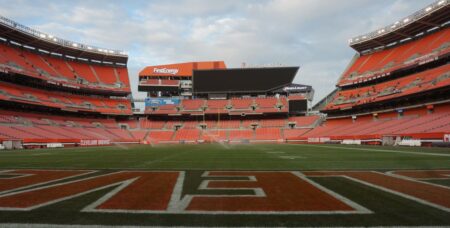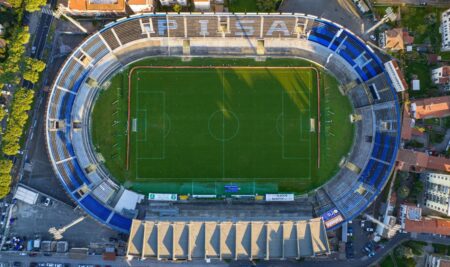The Municipal Government of Rome, Roma Capitale, has maintained that the project to deliver a new stadium for Serie A football club AS Roma is “proceeding according to plan” amid legal action concerning ownership of the land on which the facility will be built.
Italian newspaper La Repubblica has reported that some private citizens and companies have filed civil lawsuits to have their ownership rights recognised concerning certain parcels of land at the site of the proposed stadium.
Luca Zarella, a lawyer who represents various parties in the case, said: “Within the land identified for the stadium there are at least six hectares that have been managed and cared for by the citizens. And those citizens are now claiming their right to property.”
He added: “Many people are calling me to regain possession of those lands and I am convinced that their number will grow in the coming weeks.”
The latest development in the long-running saga to deliver a new home for Roma comes with a public debate process on the project due to commence today (Friday). Roma Capitale in July appointed Bologna-based Nomisma to lead public consultation on the stadium, which is slated to be built in the Pietralata district of Rome.
Councillor for Urban Planning, Maurizio Veloccia, said in a statement: “There is no obstacle linked to the availability of land in the process of building the Roma stadium in the Pietralata area, the expropriated areas belong to Roma Capitale.
“Everything for the stadium is proceeding according to plan and, during the two months of public debate, which I remind you will begin tomorrow (Friday) with the publication of the relevant dossier on a special website, we will have the opportunity to explain it in detail.
“I read in recent days a discussion on the ownership of the areas of the Sdo. It is necessary to reiterate that the expropriation decrees made years ago are all valid, the areas have been taken into possession, compensation has been paid and therefore the properties are all regularly from Roma Capitale.
“I underline that they were also before, regardless of the completion of the transcriptions and transfers, which however we had done to orderly close the documents. As regards the areas covered by the project for the new Stadio della Roma, transcriptions of the expropriated ones have been made in recent months. In fact, they have been completed, as only the last six parts are missing.
“Furthermore, land registry transfers are underway which, I repeat, have no probative value regarding the property. Finally, and as is known, within the perimeter of the stadium there are only approximately 2500m2 that have not been expropriated which will instead have to be the subject of a procedure in this sense.”
Roma in May took a major step forward in its efforts to develop a new stadium in Pietralata, with the City Council approving a resolution establishing the public interest status of the project.
The Council, or Capitoline Assembly, took the decision with 32 votes in favour and three abstentions. Roma in February hailed the “important step” of its proposed new stadium initially being declared a project of public interest.
The City Council of Rome had approved a resolution granting public interest status to the feasibility study put forward by Roma, stating the project would represent a “strategic intervention” for the overall regeneration and urban redevelopment of Pietralata.
The feasibility study was presented in October, with reports at the time stating that the project is set to come with a total price tag of €582.1m (£498.1m/$631.6m). The preliminary project presented by Roma covers an area of approximately 20 hectares and envisions the construction of a facility for 55,000 spectators, which can be extended to 62,000. The project includes the construction of parking lots, green areas covering over 15 hectares and cycle/pedestrian paths.
Roma detailed plans to build a new stadium in Pietralata back in July 2022, stating at the time that the Capitale administrative body “positively acknowledged” the willingness of the club to present a feasibility study.





